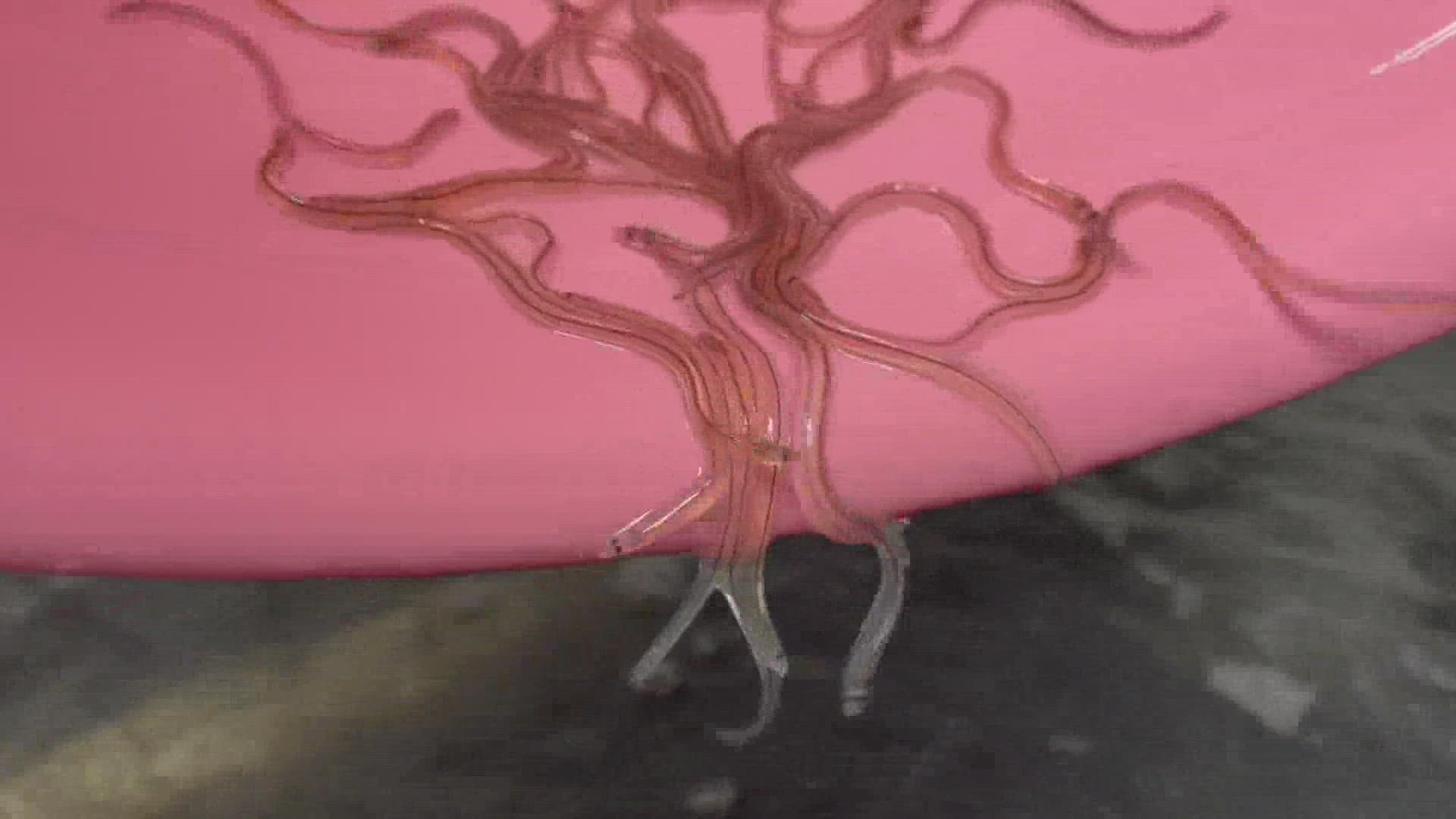PORTLAND, Maine — While their appearance is glass-like and puny, Maine elvers come with a price tag that's a shock to many.
One pound of elvers, also known as baby glass eels, sells for more than $2,000, beating out a pandemic slump of just over $500 per pound, according to the Maine Department of Marine Resources.
These eels are on the rebound, as many close to the industry said this is the best season they've had in recent history. This season was so productive. In fact, the limits will be reached before May, more than a month before their expected end date.
But why so expensive? These elvers may be two inches now but can grow up to five feet long.
These eels will also be shipped across the world to China and Japan, where they will be farmed for their meat.
"This season has been the most incredibly unique," John Kerry, owner of International Seafood Harvesting in Portland, said. "This has been one of the earliest seasons in memory because the elvers came early due to wind currents, ocean currents, weather, and the season has been a very rapidly developing season."
Kerry and his son, Ryan, have been buying elvers off fishers around the state and selling them to Japan for the last eight years.
"You can't underscore it that this has been good for the Maine economy. This helps fishermen, this helps their families, this helps all the persons that supply them, and it helps everyone in the state of Maine," Kerry said.
The Maine Legislature works with the Atlantic States Marine Fisheries Commission every year to decide on quotas, or limits, for eel fishers.
"I think we've been very supported by the government, as well as the fishing industry as a whole. And I think that’s been good for Maine fishermen," Kerry said.
Meanwhile, Jason Bartlett, a scientist with the Maine Department of Marine Resources, is in the middle of a 17-year long study on eel life cycles and said just because this season was good doesn't guarantee next year will be the same.
"My take-home point would be, this is a really good year, [but] last year was really different. The quota wasn't actually filled last year. It varies year to year. It's very hard to predict what will even happen next year," Bartlett said.
Bartlett added that while the quota system is good, the industry's future is always changing.
"I think in time, it's going to be a bigger conversation. Like I said, there’s a lot more to eels going on than just the elver fishery. But you know climate change ... could lead to some changes in the future."

